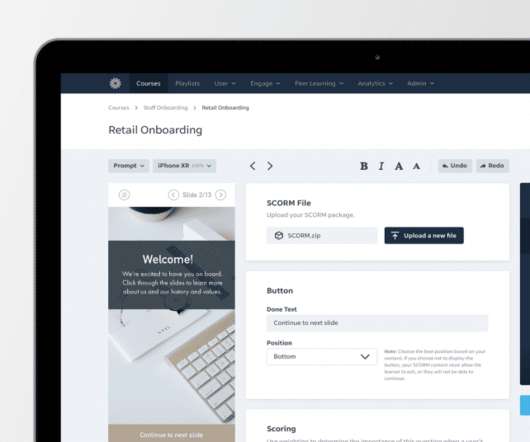Tin Can API: What It Has in Store for Online Learning Environments
ProProfs
JULY 5, 2019
This method is not conducive to the holistic development of learners as it doesn’t show the whole picture of the learning activity. It can help you track, store, and communicate learning experiences, both offline and online, in the form of statements. Later on, it was officially renamed as “ xAPI ” or “ Experience API ” by ADL.

























Let's personalize your content